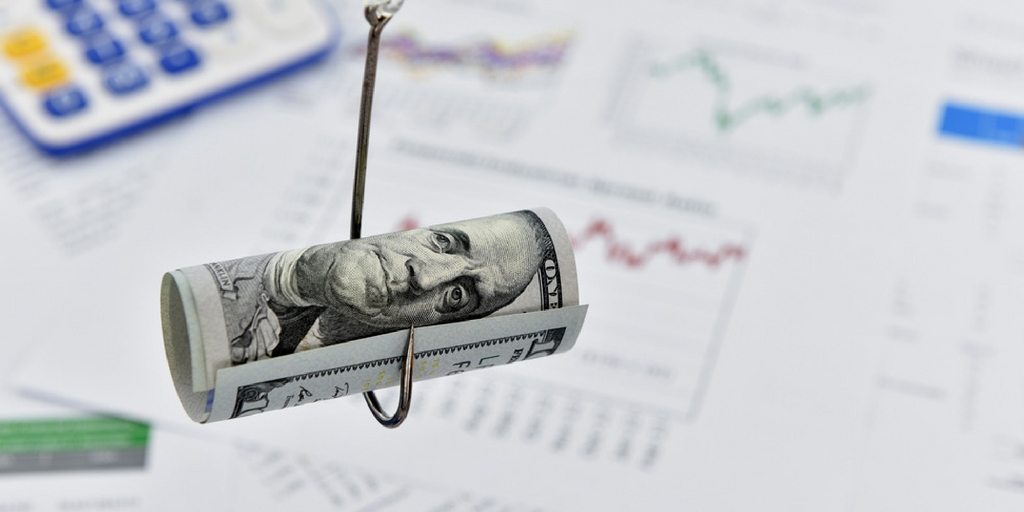How to identify forex scams
In any arena where large sums of money change hands at speed, you can guarantee that there will be scammers. Exactly how much money is lost to forex traders in this way is difficult to establish because many people are too embarrassed by how they’ve been swindled to want to talk about it – and that makes it all the easier for the scammers to get away with it. How can you stay safe? What do you need to know about scams and the people who run them? How can you find a safe way to trade, and what should you do if, despite all your precautions, you find yourself a victim?

Basic safety tips
A lot of what you need to do to stay safe comes down to common sense. Scammers look for people who are naive, careless, greedy or desperate. Keeping cool and thinking first should keep you out of trouble. Familiarise yourself with the risks at ForexFraud.com and be wary of the following:
- Promises of really high success rates. Nothing is that certain in forex trading.
- Pressure to agree right away. This is a classic scammer tactic.
- Pressure to supply personal information. This can be used for identity theft and it’s very rarely needed by genuine dealers.
Robot scams
Scammers routinely hook people in with the promise of something for nothing. A common variant of this is the promise of a robot that will trade on your behalf when you’re not even there – for instance, overnight when you’re asleep. Don’t be fooled. If the people who claim to have access to this robot could really make money that way, they wouldn’t be trying to make a living by selling things to strangers. Forex trading is like any other profession – if you want money, you’re going to have to work for it.
Phony funds
If you don’t have a lot of time to make the trades you’d like to and you don’t want to trust a robot, why not pay a fund manager to trade on your behalf? This isn’t actually a bad idea, but the problem is that there are a lot of phony fund managers out there. All they want is for you to sign over access to your money – then they’ll string you along and say it’s bad luck that you’re getting very little in the way of returns, while they use your money for their own benefit. Don’t fall for it. If you want to use a fund manager, look for a well known one with a good reputation – preferably somebody who has a proven track record of getting results for people you know personally.
Signal seller scams
Signal sellers are individuals or businesses offering systems whereby you pay a regular fee and they give you supposedly professional, expert advice on good times to buy or sell particular currency pairs. There are genuine signal sellers out there but they are few and far between, and there are a lot of scammers. All they do is collect fees and disappear. Occasionally they will let you make a couple of trades first to give the impression they’re legitimate and persuade you to pay a larger fee for a premium service.
Point-spread scams
The earliest major forex scam developed was the point-spread scam, and although it’s less common now because a lot of people are wise to it, it still poses a threat to newcomers. Essentially, it’s a spread betting scam whereby you’re offered a range of opportunities to win and the ease with which you could make good money look very attractive. What isn’t discussed is how easy it is to lose money, nor the fact that most gains are so small that you can expect to end up with nothing after the broker has extracted fees.
Finding trustworthy brokers
How can you find a broker you can trust? The simple answer is to use a well known one, but here you must be very careful. Scammers often use similar company names, logos and even URLs in an effort to inspire trust. They may even claim to be FCA registered. Always check the FCA register yourself to see if that’s true. Look out for inconsistencies in websites, email addresses and marketing materials.
What to do if you’ve been scammed
If you’ve been the victim of a scam, don’t be ashamed to speak up. Doing so could spare someone else the same fate. Contact a regulatory body to report what happened – in the UK, that should be the FCA. Don’t let the scammers get away with it.
Don’t let the existence of scammers put you off trading. With experience, you’ll find them increasingly easy to avoid. You’ll also build up your professional skills so that promises of easy money no longer tempt you as they did – you’ll know how to earn your success.
